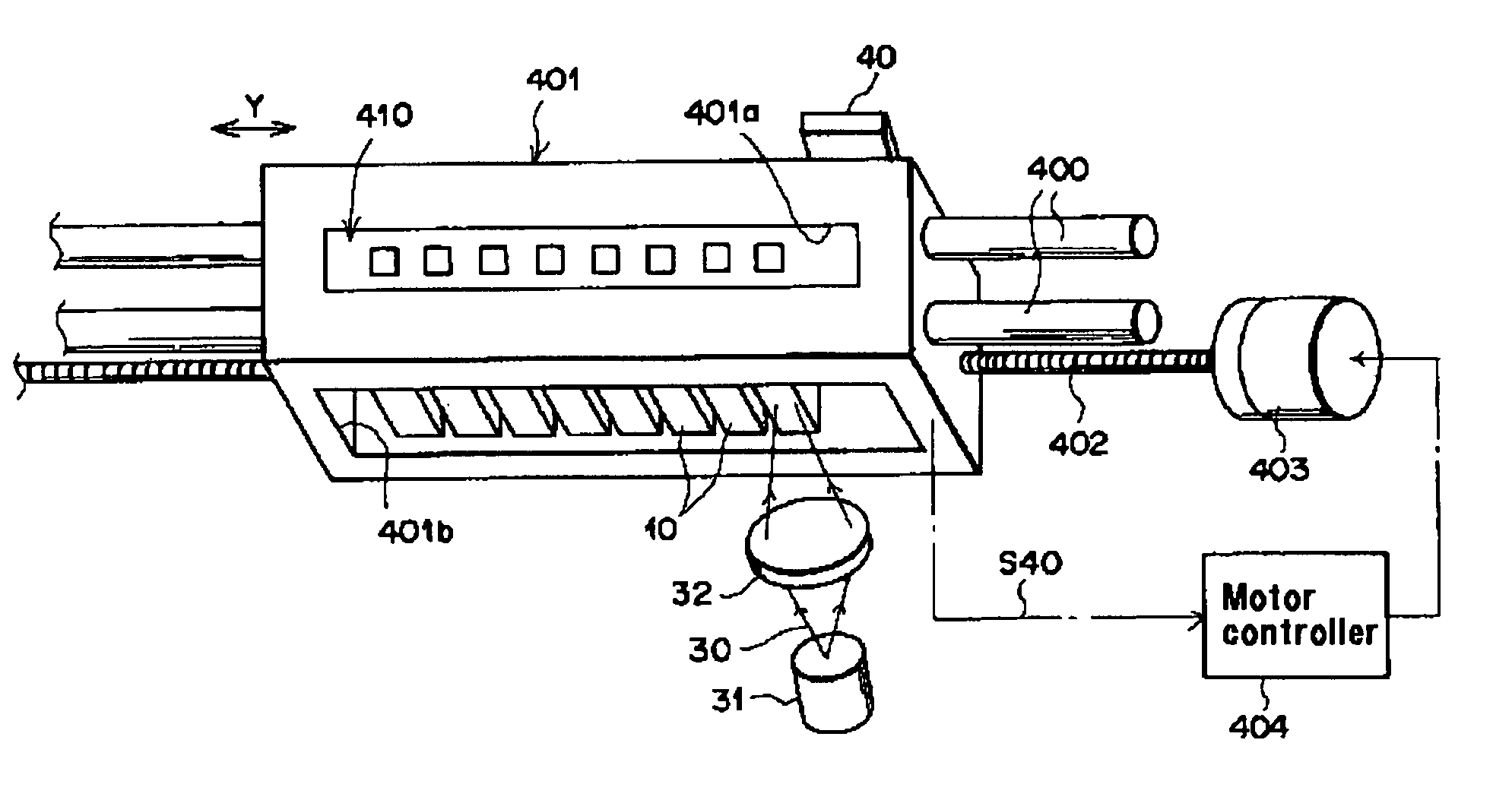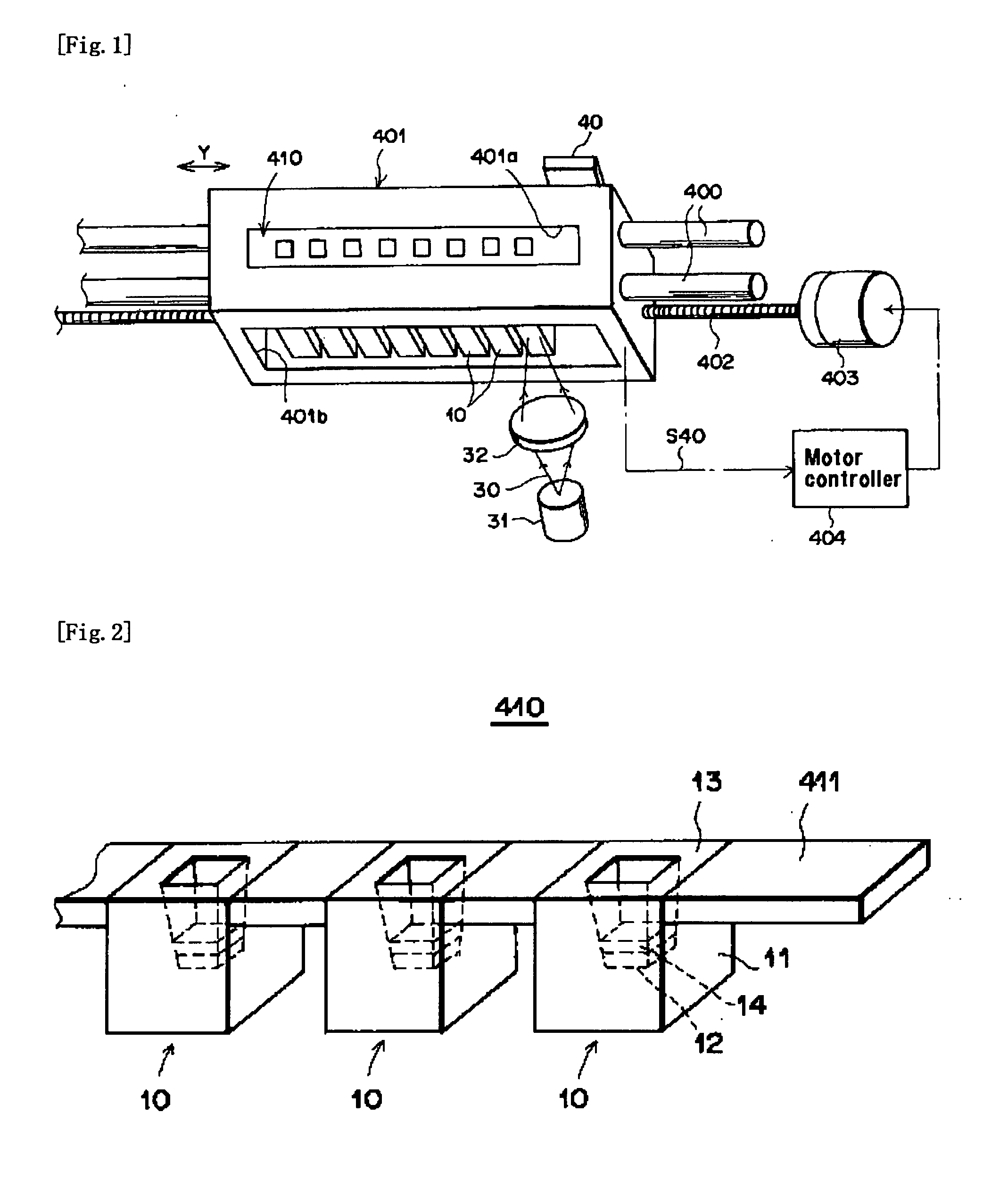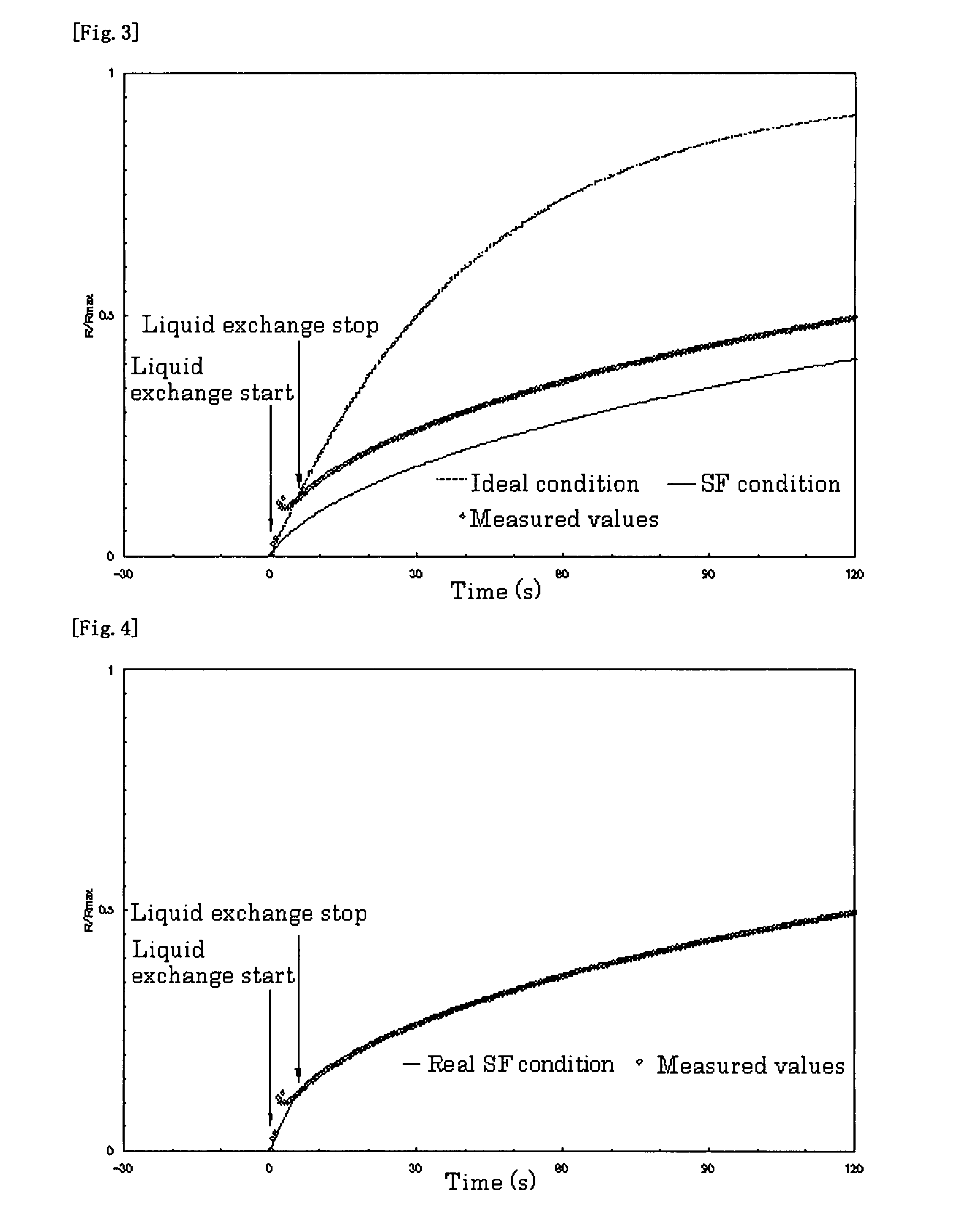Method for Measuring Dissociation Constant by Surface Plasmon Resonance Analysis
a surface plasmon and constant technology, applied in the direction of phase-affecting property measurement, instruments, measurement devices, etc., can solve the problems of low noise level, low accuracy, and difficulty in achieving highly reliable data for binding detection, etc., to achieve high reliability and measurement results, low noise level, and low baseline
- Summary
- Abstract
- Description
- Claims
- Application Information
AI Technical Summary
Benefits of technology
Problems solved by technology
Method used
Image
Examples
examples
[0098] The following experiment was carried out using a device shown in FIG. 22 of Japanese Patent Laid-Open No. 2001-330560 (hereinafter referred to as the surface plasmon resonance measurement device of the present invention) (shown in FIG. 1 of the present specification) and a dielectric block shown in FIG. 23 of Japanese Patent Laid-Open No. 2001-330560 (hereinafter referred to as the dielectric block of the present invention) (shown in FIG. 2 of the present specification).
[0099] In the surface plasmon resonance measurement device shown in FIG. 1, a slide block 401 is used as a supporting medium for supporting measurement units, which is joined to two guide rods 400, 400 placed in parallel with each other while flexibly sliding in contact, and which also flexibly moves linearly along the two rods in the direction of an arrow Y in the figure. The slide block 401 is screwed together with a precision screw 402 placed in parallel with the above guide rods 400, 400, and the precisio...
PUM
| Property | Measurement | Unit |
|---|---|---|
| time | aaaaa | aaaaa |
| time | aaaaa | aaaaa |
| time | aaaaa | aaaaa |
Abstract
Description
Claims
Application Information
 Login to View More
Login to View More - R&D
- Intellectual Property
- Life Sciences
- Materials
- Tech Scout
- Unparalleled Data Quality
- Higher Quality Content
- 60% Fewer Hallucinations
Browse by: Latest US Patents, China's latest patents, Technical Efficacy Thesaurus, Application Domain, Technology Topic, Popular Technical Reports.
© 2025 PatSnap. All rights reserved.Legal|Privacy policy|Modern Slavery Act Transparency Statement|Sitemap|About US| Contact US: help@patsnap.com



